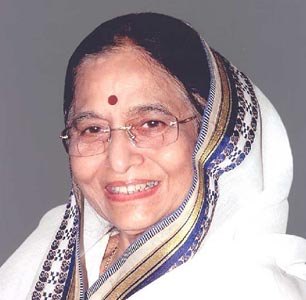 President Patil's speech at international seminar | |
|
New Delhi, Dec 16 (IBNS): SPEECH BY HER EXCELLENCY THE PRESIDENT OF INDIA SHRIMATI PRATIBHA DEVISINGH PATIL AT THE INAUGURATION OF THE INTERNATIONAL SEMINAR ON PLURALISTIC VISION IN THE GURU GRANTH SAHIB Ladies and Gentlemen, Sat Sri Akal - my greetings to all present here. Last year in November, I was fortunate to have visited Shri Hazoor Sahib at Nanded to participate in the celebrations organized there to mark the 300 years of the installation of the Guru Granth Sahib, as the eternal Guru and as the sacred book of the Sikhs. This year I had the opportunity to pay obeisance at the Shri Harmandir Sahib in Amritsar. I am, therefore, particularly happy to inaugurate the International Seminar on Pluralistic Vision in the Guru Granth Sahib organized by the Bhai Veer Singh Sahitya Sadan. The contents of the Sikh holy book called Gurbani have undoubtedly provided guidance to the millions belonging to the Sikh community. But, it can also be definitely said that its verses find resonance in the hearts and minds of all, who hear them and study them. The Guru Granth Sahib has contributed immensely to enriching the culture and heritage of India. It contains the compositions of the Sikh gurus and also of a large number of bhakts and saints of that time, cutting across religious lines, including Kabir, Surdas, Namdev, Ravidas and Baba Farid. The founder of the Sikh religion, Guru Nanak Dev was very much a part of the Bhakti Movement. The religion he founded evolved over a period of time with significant contributions from his successors. The development of the Gurmukhi script, the concept of the Langar as a common kitchen for all, the foundation of the holy city of Amritsar with the Temple within the pool of nectar, were all essential parts of this process of evolution. It was the fifth Guru, Guru Arjun Dev, who took the first steps to compile the Adi Granth. It was the tenth Guru, Guru Gobind Singh, who enjoined upon the Sikhs to treat the holy book as the embodiment of the Guru, while directing that there would be no successor Guru after him. Hence, his direction at Nanded - "Guru Manio Granth". The teachings of the Granth Sahib have remained relevant and alive ever since. Its very construct and arrangement is an example of the great Indian secular tradition, wherein compositions have been included from both Hindu and Muslim saints and given the same importance as the verses of the Gurus. This syncretic tradition is fundamental to the spirit of the Granth Sahib and the very essence of this message can be felt at its very beginning, which sings the praise of one Lord who is the Creator of all. Meaning that there is but one God. True is His Name The Guru Granth Sahib was written in the language of the people, so that all could understand the message of the Gurus and the Saints. Moreover, as the text is organized into 31 main ragas, the hymns in the Guru Granth Sahib lend themselves to musical rendition, broadening its reach. A fundamental tenet of Sikhism is that of universal equality and that all human beings are equal. In one of its verses it is stated:- Meaning that the entire universe is made of the same clay. In keeping with this spirit, the Gurudwara is a place of worship with doors in all four directions, to welcome all castes and creeds, high and low. Another distinguishing feature of the teachings of the Guru Granth Sahib is equal status to women. Guru Nanak and his successors repeatedly highlighted the position of women in society, and encouraged them to perform all those roles which were traditionally reserved for men. Therefore, there is all the more reason for stopping female foeticide in the country and in Punjab. In Sikhism an ideal existence can be found on Earth itself when a human being follows a path of humility and compassion. In fact, Guru Nanak encouraged his followers to achieve perfection while living a family life through observing correct conduct, which acts as an example for others. A verse contained in the Guru Sahib states:- "A Householder who does no evil, The message of the Guru Granth Sahibji is eternal. I am confident that it will continue to guide many generations to follow the path of correct living. Renowned world historian Arnold J. Toynbee writes: - "...the living higher religions are going to influence each other more than even before, in these days of increasing communication between all parts of the world and all branches of the human race. In this religious debate, the Sikh religion and its scripture the Adi Granth will have something of special value to say to the rest of the world." The vision contained in the Gurubani will be important in pluralistic societies and for building bridges of understanding in our multi-hued world. With these words, I once again convey very warm greetings to all who are present here. Thank You. Jai Hind! | |
